Weiliang Will Zeng
How Efficient is LLM-Generated Code? A Rigorous & High-Standard Benchmark
Jun 10, 2024
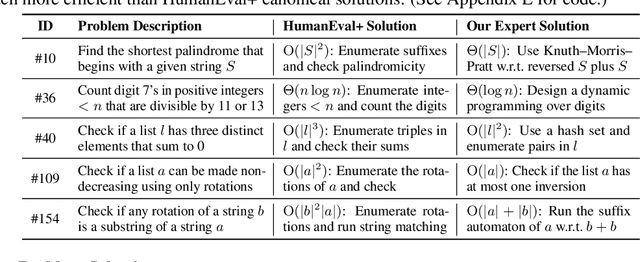
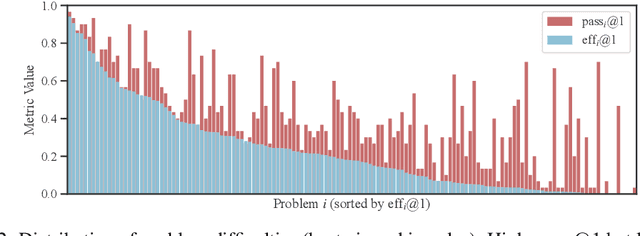
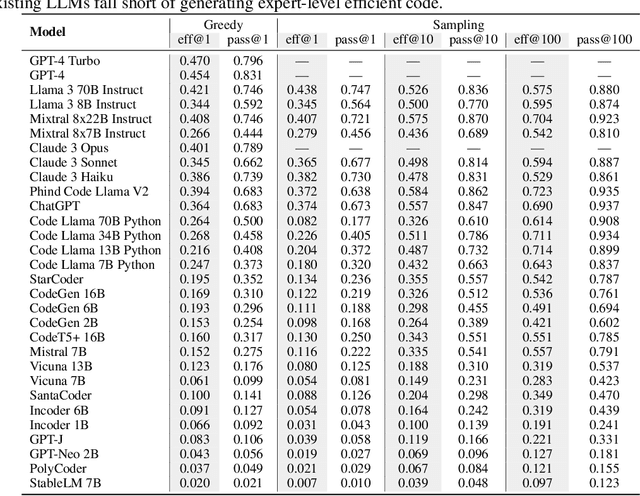
Abstract:The emergence of large language models (LLMs) has significantly pushed the frontiers of program synthesis. Advancement of LLM-based program synthesis calls for a thorough evaluation of LLM-generated code. Most evaluation frameworks focus on the (functional) correctness of generated code; efficiency, as an important measure of code quality, has been overlooked in existing evaluations. In this work, we develop ENAMEL (EfficeNcy AutoMatic EvaLuator), a rigorous and high-standard benchmark for evaluating the capability of LLMs in generating efficient code. Firstly, we propose a new efficiency metric called eff@k, which generalizes the pass@k metric from correctness to efficiency and appropriately handles right-censored execution time. Furthermore, we derive an unbiased and variance-reduced estimator of eff@k via Rao--Blackwellization; we also provide a numerically stable implementation for the new estimator. Secondly, to set a high-standard for efficiency evaluation, we employ a human expert to design best algorithms and implementations as our reference solutions of efficiency, many of which are much more efficient than existing canonical solutions in HumanEval and HumanEval+. Moreover, to ensure a rigorous evaluation, we employ a human expert to curate strong test case generators to filter out wrong code and differentiate suboptimal algorithms. An extensive study across 30 popular LLMs using our benchmark ENAMEL shows that LLMs still fall short of generating expert-level efficient code. Using two subsets of our problem set, we demonstrate that such deficiency is because current LLMs struggle in designing advanced algorithms and are barely aware of implementation optimization. Our benchmark is publicly available at https://github.com/q-rz/enamel .
Neural Topological Ordering for Computation Graphs
Jul 13, 2022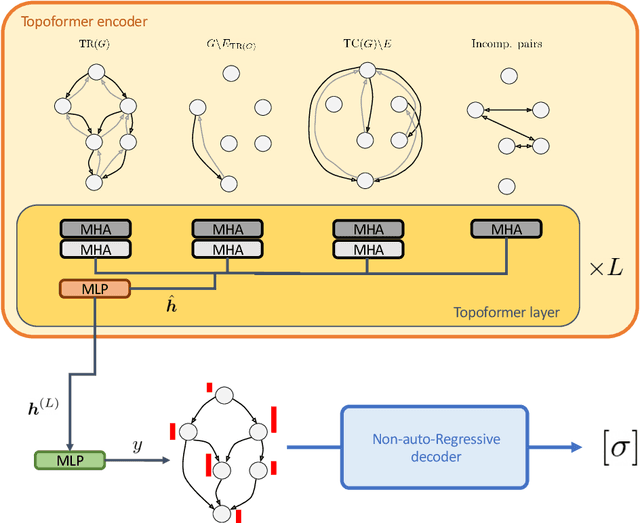

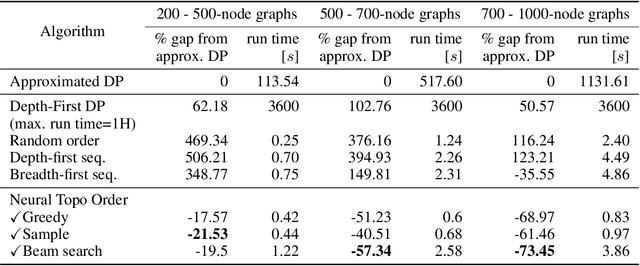
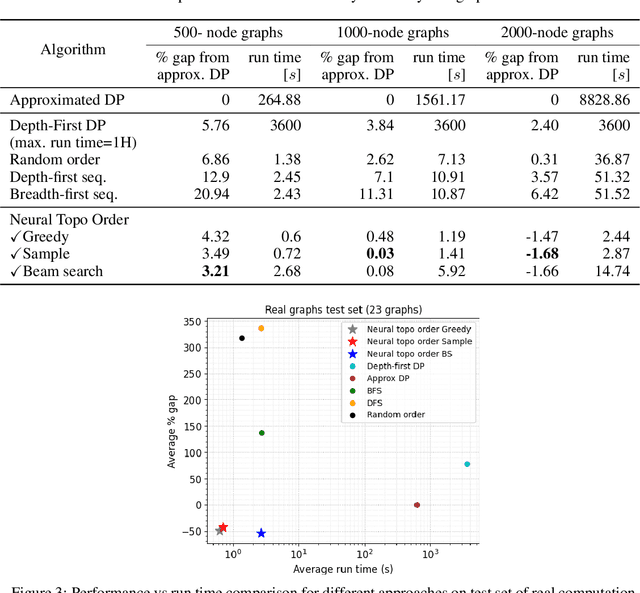
Abstract:Recent works on machine learning for combinatorial optimization have shown that learning based approaches can outperform heuristic methods in terms of speed and performance. In this paper, we consider the problem of finding an optimal topological order on a directed acyclic graph with focus on the memory minimization problem which arises in compilers. We propose an end-to-end machine learning based approach for topological ordering using an encoder-decoder framework. Our encoder is a novel attention based graph neural network architecture called \emph{Topoformer} which uses different topological transforms of a DAG for message passing. The node embeddings produced by the encoder are converted into node priorities which are used by the decoder to generate a probability distribution over topological orders. We train our model on a dataset of synthetically generated graphs called layered graphs. We show that our model outperforms, or is on-par, with several topological ordering baselines while being significantly faster on synthetic graphs with up to 2k nodes. We also train and test our model on a set of real-world computation graphs, showing performance improvements.
 Add to Chrome
Add to Chrome Add to Firefox
Add to Firefox Add to Edge
Add to Edge